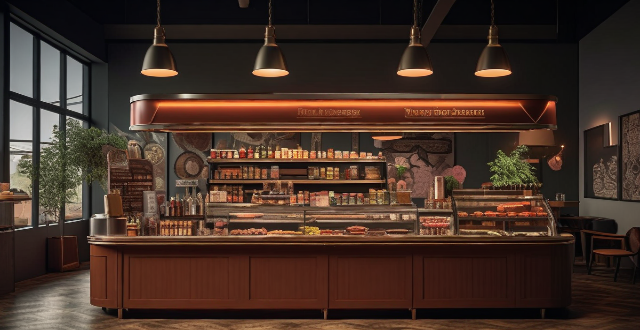Joining a restaurant franchise can be an exciting opportunity for entrepreneurs, but it is important to understand the potential risks involved. These include a lack of control over business decisions, high start-up costs, competition from other franchisees, dependence on franchisor support, and legal and regulatory issues. By carefully considering these risks and taking steps to mitigate them, you can increase your chances of success as a franchisee.

What are the Risks Involved in Joining a Restaurant Franchise?
Introduction
Joining a restaurant franchise can be an exciting opportunity for entrepreneurs looking to start their own business. However, it is important to understand the risks involved before making such a significant investment. In this article, we will discuss some of the potential risks associated with joining a restaurant franchise.
Lack of Control Over Business Decisions
One of the biggest risks involved in joining a restaurant franchise is the lack of control over business decisions. As a franchisee, you are required to follow the franchisor's guidelines and policies, which may limit your ability to make independent decisions about your business. This can be frustrating if you have ideas or strategies that you believe would benefit your business but are not allowed by the franchisor.
High Start-Up Costs
Another risk involved in joining a restaurant franchise is the high start-up costs. Franchisees are typically required to pay an initial franchise fee, as well as ongoing royalties and advertising fees. Additionally, there may be costs associated with building out the physical location, purchasing equipment, and hiring staff. These expenses can add up quickly and may put a strain on your finances if the business does not generate enough revenue to cover them.
Competition from Other Franchisees
When you join a restaurant franchise, you become part of a larger network of franchisees who are all operating under the same brand name. This can lead to competition between franchisees for customers and market share. If other franchisees in your area are more successful than you, it can be difficult to attract and retain customers.
Dependence on Franchisor Support
As a franchisee, you are dependent on the franchisor for support and guidance. If the franchisor fails to provide adequate support or makes changes to their policies and procedures that negatively impact your business, it can be challenging to adapt and remain profitable. Additionally, if the franchisor experiences financial difficulties or goes out of business, it could have serious consequences for your franchise location.
Legal and Regulatory Issues
Operating a restaurant franchise involves navigating various legal and regulatory issues, including health and safety regulations, labor laws, and tax requirements. Failing to comply with these regulations can result in fines, lawsuits, and damage to your reputation. It is essential to work closely with legal and accounting professionals to ensure that your business is fully compliant with all applicable laws and regulations.
Conclusion
While joining a restaurant franchise can offer many benefits, such as access to a proven business model and brand recognition, it is important to carefully consider the potential risks involved before making a decision. By understanding these risks and taking steps to mitigate them, you can increase your chances of success as a franchisee.